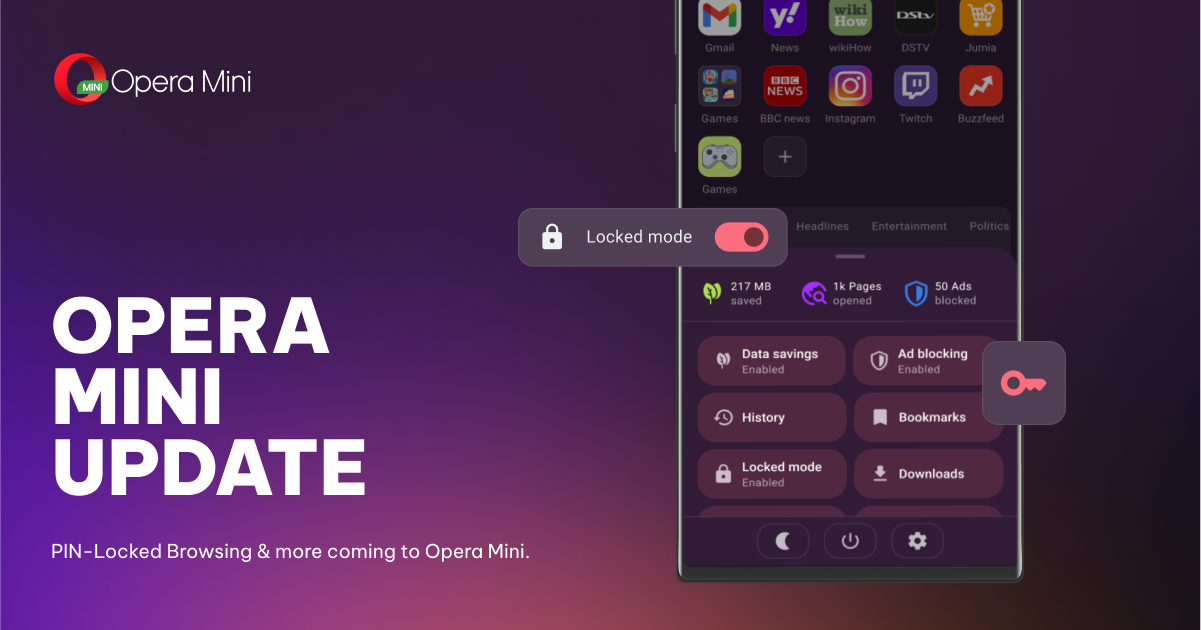Opera Mini, a global leader in browser innovation, introduced Locked Mode, a security feature for Opera Mini that allows PIN-protected browsing to further strengthen privacy protections.
Users now have more control over their mobile browsing thanks to the new Locked Mode, which safeguards their tabs, history, and saved data and lets them establish a PIN that is separate from the device’s primary lock passcode.
Jørgen Arnesen, EVP of Mobile at Opera, commented that PIN-Locked Browsing and Private Downloads redefine how users experience the web on shared devices, ensuring that personal information remains personal. By focusing on what users need most, such as privacy and security, Opera Mini is setting new standards in mobile browsing.
Read also: 5 key takeaways from Africa CyberFest 2024
He also added that this commitment is transforming user interactions on shared devices, building a foundation of trust and reliability that stands at the forefront of the mobile industry.
Opera Mini: Enhanced Privacy Control
When using Opera Mini in Locked Mode for the first time, users will be requested to set a unique PIN that differs from the PIN on their device. This improves privacy control, especially for those who frequently share an unsecured device with friends and family.
Immediately the security lock is activated, all new tabs opened and data enters – such as URLs and search engines – are encrypted. These tabs and data are visible only when Locked Mode is active and unlocked with the correct PIN.
In addition, the browsing history within Locked Mode remains inaccessible from the standard browsing mode, ensuring that any sites visited or searches made are kept private and visible only when Locked Mode is re-entered.
To effortlessly move between regular and safe browsing modes, users can enable Locked Mode in Opera Mini via the O-Menu or the tabs switcher mode.
PIN-Locked Browsing: A Game-Changer for Online Privacy
Recent brand surveys carried out by the company in important regions like Kenya and Nigeria have shown a noteworthy trend: customers prioritise privacy when choosing a browser.
Read also: Google partners with Kenyan authorities on Cybersecurity
In these markets, a great deal of respondents, more than 90%, cited privacy as a key consideration when selecting a browser. This demonstrates the increasing worry that people have over the safety of their personal data when using the internet.
The company responded to this worry by launching PIN-Locked Browsing, an innovative tool meant to tackle privacy issues head-on. Pin-locked browsing allows users to protect their browsers with a special PIN, preventing unauthorised access and guaranteeing the privacy of their personal data.
When using this function, users can browse the internet with peace of mind because it adds another degree of protection. The company hopes to empower and enlighten users to take charge of their online privacy and secure their personal information from intruders by releasing this new feature.














